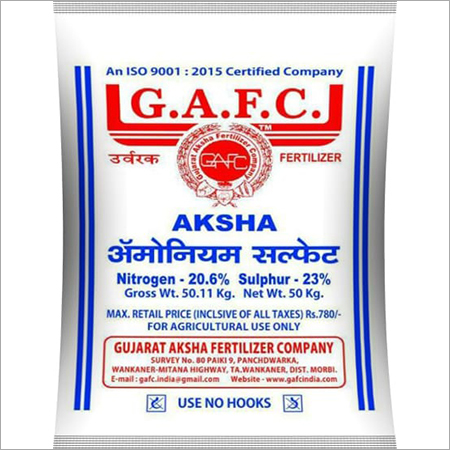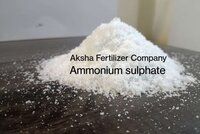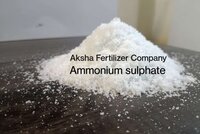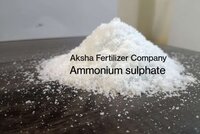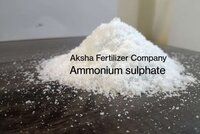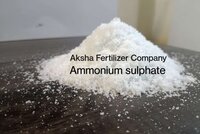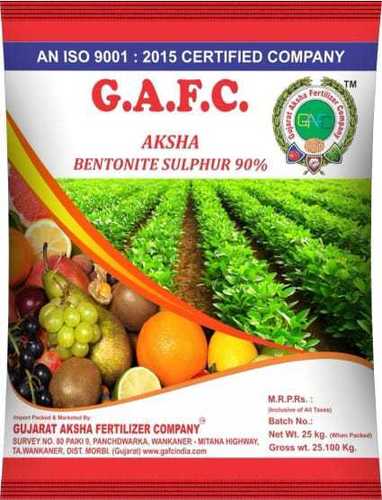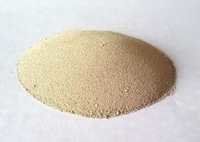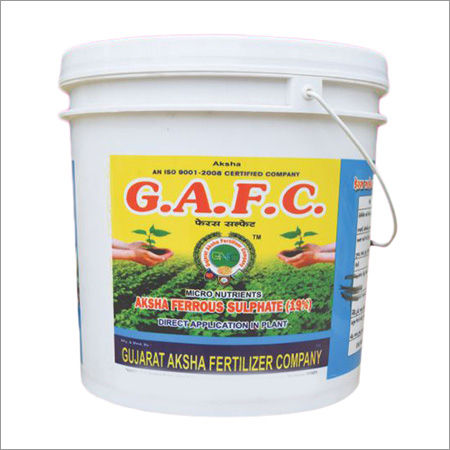Ammonium Sulphate
Product Details:
- Classification Nitrogen Fertilizer
- Chemical Name Ammonium Sulphate
- Type Ammonium Sulphate
- Physical State Powder
- Release Type Other
- CAS No 12
- Purity(%) 99.5%
- Click to View more
Ammonium Sulphate Price And Quantity
- 15 Ton
- 10.00 - 30.00 INR/Ton
- 15000 INR/Ton
Ammonium Sulphate Product Specifications
- Ammonium Sulphate
- Other
- 98%
- 99.5%
- 25
- Powder
- Nitrogen Fertilizer
- 12
- Agriculture
- White
- Ammonium Sulphate
Ammonium Sulphate Trade Information
- 50000 Ton Per Day
- 5 Days
- Yes
- Free samples are available
- All India
Product Description
Ammonium Sulphate
Ammonium Sulfate is widely applicable as a reagent used in molecular biology. This is functional as a good precipitant agent for proteins and is known as a high-quality food additive. This is one of the most widely used fertilizers, suited for advanced crop production. Ammonium Sulfate is basically a typical nitrogen-based as well as fast acting fertilizer which can make reduction in the pH balance of the soil. It is safe for its use on grass, shrubs, flowers, trees, vegetables and vines.
Frequently Asked Questions:
What is ammonium sulphate used for?
Approximately 50% of all sulphur (S) fertiliser used worldwide is ammonium sulphate. Ammonium-based fertilisers are known to be susceptible to ammonia (NH3) volatilization in soils with a pH of 7, although this has been disregarded in decisions on S fertilisation.
Why is ammonium sulphate not used as fertilizer?
The ammonium ion is released in the soil and converts to a little amount of acid, which lowers the pH equilibrium of the soil and provides necessary nitrogen for plant growth. The biggest drawback of using ammonium sulphate is that it contains less nitrogen than which raises transportation expenses.
Is ammonium sulfate a good fertilizer?
Ammonium sulphate, which has a nitrogen content of 21%, is an excellent fertiliser for evergreens as well as other growing plants. Ammonium Sulfate will also lower the pH of the soil because it contains 24% sulphur, therefore you need to watch out that it doesn't happen too often.
Which is better urea or ammonium sulphate?
If the fertiliser was applied before the permanent flood, ammonium sulphate was preferable to urea. Up until panicle commencement, when there was minimal difference between the two fertilisers, urea was superior after permanent flood. Compared to urea, ammonium sulphate seems to be more sensitive to application time.


 English
English Spanish
Spanish French
French German
German Italian
Italian Chinese (Simplified)
Chinese (Simplified) Japanese
Japanese Korean
Korean Arabic
Arabic Portuguese
Portuguese